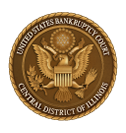The Debtor, who was the sole shareholder of a corporation, fabricated a document that purported to grant to a creditor a security interest in that company’s valuable assets. The document (and other related false documents) was produced to support the validity of a false lien encumbering the assets, thereby hindering the Chapter 7 Trustee’s ability to ascertain the value of the Debtor’s equity in the company. When other creditors who had also been affected by the falsifications objected to the Debtor’s discharge, the Debtor failed to produce sufficient evidence to justify his falsifications. The creditors’ motion for summary judgment was therefore granted and the Debtor’s discharge denied.
Statute: 11 U.S.C. §727(a)(3).
